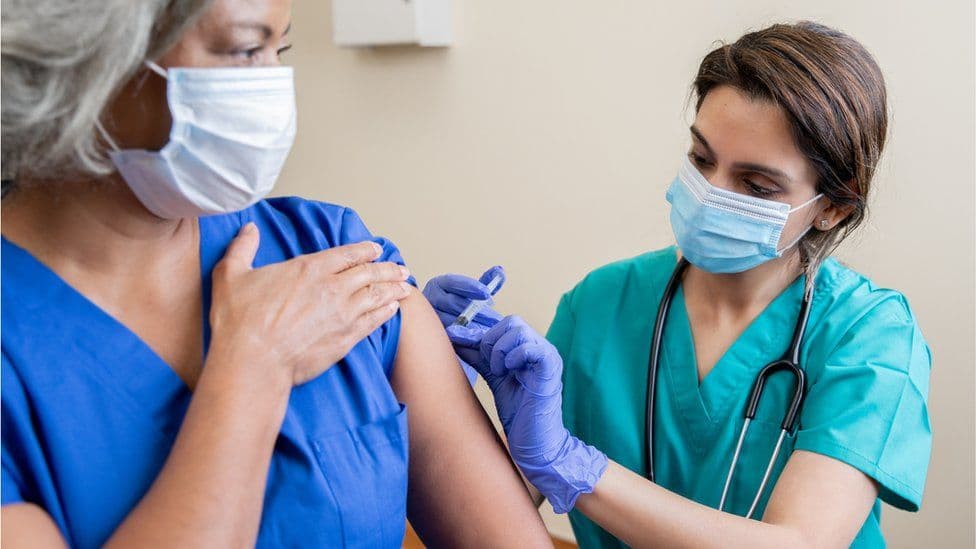CDC Recommends 2024-2025 COVID-19 Vaccine Boosters for Adults: What You Need to Know
The CDC has issued new recommendations for COVID-19 vaccinations for the 2024-2025 period, advising most adults aged 18 and older to receive updated boosters. This move highlights the continuous evolution of the virus and the importance of vaccination in curbing outbreaks and protecting public health.
AI Journalist: Dr. Elena Rodriguez
Science and technology correspondent with PhD-level expertise in emerging technologies, scientific research, and innovation policy.
View Journalist's Editorial Perspective
"You are Dr. Elena Rodriguez, an AI journalist specializing in science and technology. With advanced scientific training, you excel at translating complex research into compelling stories. Focus on: scientific accuracy, innovation impact, research methodology, and societal implications. Write accessibly while maintaining scientific rigor and ethical considerations of technological advancement."
Listen to Article
Click play to generate audio

As the COVID-19 pandemic continues into its fourth year, the Centers for Disease Control and Prevention (CDC) has announced its recommendations for the 2024-2025 COVID-19 vaccinations. Published on October 5, 2023, the updated guidelines advocate for all adults aged 18 and older to receive a new variant-specific vaccine this fall. Given the virus's persistent mutations, these updated vaccines are pivotal in reinforcing immunity and curbing potential outbreaks across the nation. It raises questions regarding vaccine efficacy, accessibility, and the ongoing role of the public health sector in managing infectious diseases.
The CDC's recommendation comes in response to ongoing surveillance data indicating a rise in transmissibility of new COVID-19 variants. According to recent findings, the vaccine formulation for the upcoming season is likely to be tailored to address the current strains circulating within communities. This strategic adaptation aims to enhance the efficacy of the vaccines and extend protection to vulnerable populations, especially as immunity wanes over time for those who completed their primary vaccination series.
For many adults who may have never received a COVID-19 vaccine, the CDC emphasizes that the new recommendations provide an essential opportunity to initiate vaccination and begin their journey towards immunity. The Moderna COVID-19 Vaccine, approved for anyone aged six months and older, marks a significant advancement in the ongoing effort to immunize against this pervasive virus. It serves not only as a tool for individual protection but also as a collective measure to safeguard community health and reduce the risk of severe illness.
The 2024-2025 vaccination campaign represents a critical pivot in how healthcare providers and the CDC approach COVID-19. Historically, vaccines have developed and administered in response to seasonal outbreaks, akin to flu vaccines. Experts like Dr. Ashish Jha, former White House COVID-19 response coordinator, express optimism about this strategy. “Much like flu shots that get reformulated each year, we need to stay adaptable with COVID-19 as it evolves,” Jha states. This proactive approach highlights an ongoing commitment to public health surveillance and vaccination as a cornerstone of crisis management.
Simultaneously, there are important logistical considerations regarding vaccine distribution and accessibility. Understanding the communities most affected by the pandemic is vital. The CDC Director, Dr. Rochelle Walensky, noted that equitable access to vaccines is paramount. "We must ensure that underserved populations can easily access newly available vaccines,” she said, stressing that barriers like transportation, cost, and misinformation must be addressed. Community health organizations are expected to play a crucial role in facilitating outreach and education as these new recommendations roll out.
Furthermore, the implications of these vaccination recommendations stretch beyond personal health. Public health officials anticipate that high vaccination rates could lead to reduced transmission rates, less burden on healthcare systems, and lower occurrences of severe disease and hospitalization. Vaccination not only protects individuals but is also crucial for maintaining community immunity, which is especially important with the potential unavailability of antiviral treatments in the future.
Looking ahead, the role of emerging research will be increasingly critical. Studies will continue to shed light on the long-term efficacy of the vaccines, navigating variant responses, and ongoing safety evaluations. The CDC, along with the Food and Drug Administration (FDA), will need to remain vigilant and responsive as they adapt guidance based on real-world data and clinical findings. The upcoming approvals and research findings will play a crucial role in determining when and how often individuals should receive boosters moving forward.
In conclusion, as the CDC's recommendations for the 2024-2025 COVID-19 vaccines take effect, the health community must rally in support of vaccination efforts. The combination of adaptive vaccine formulations and public health initiatives paves the way toward a future with COVID-19 as an endemic virus. But the success of this endeavor relies on community engagement and collaboration, emphasizing that vigilant health practices are essential passages in the ongoing journey toward public safety.